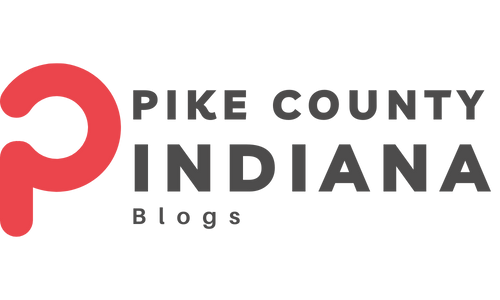Indiana, traditionally known for its manufacturing prowess, is undergoing a remarkable economic transformation. As industries evolve and new technologies reshape the global economy, Indiana is embracing innovation, technology, and entrepreneurship to position itself as a leader in business and investment. The state is no longer just a manufacturing hub—it’s quickly becoming a key player in the world of technology, innovation, and sustainability.
In this blog, we’ll take a closer look at how Indiana’s economic landscape is changing, the industries driving growth, and how entrepreneurs and investors can benefit from the state’s ongoing transformation.
Indiana’s Shift Towards Innovation and Technology
Historically, Indiana’s economy was dominated by industries like automotive manufacturing, agriculture, and steel production. While these sectors still play a major role, the state is undergoing a shift towards more knowledge-based industries driven by technology, digital innovation, and clean energy.
Key Drivers of Change:
- Tech and Digital Economy:
- Cities like Indianapolis and Fort Wayne have become hotspots for tech startups, software development, and IT services. Indiana’s affordable cost of living and thriving entrepreneurial ecosystem have made it an attractive alternative to high-cost cities like San Francisco and New York.
- With a growing number of venture capital firms, incubators, and accelerators, Indiana is increasingly seen as a tech hub for innovation, especially in sectors like cloud computing, cybersecurity, artificial intelligence (AI), and fintech.
- Education and Talent Development:
- Indiana boasts world-class universities such as Purdue, Indiana University, and Ball State, which provide a strong talent pipeline for businesses in technology, engineering, and life sciences. The state’s focus on education and research ensures that Indiana has a highly skilled workforce to support its evolving business environment.
- Universities are not only producing graduates but also fostering research-driven innovation, especially in areas like biotechnology, renewable energy, and advanced manufacturing.
- Clean Energy and Sustainability:
- With a growing commitment to renewable energy, Indiana is making strides in solar, wind, and electric vehicle (EV) manufacturing. The state has set ambitious goals to reduce carbon emissions and transition to a more sustainable future.
- Entrepreneurs and investors in the green energy and sustainability sectors are finding significant opportunities in solar panel manufacturing, EV infrastructure, and energy-efficient technologies.
Key Industries Driving Indiana’s Economic Growth
While traditional sectors like manufacturing and logistics remain important, several industries are experiencing rapid growth, creating new opportunities for businesses and entrepreneurs in Indiana.
1. Technology and Startups
- The technology sector in Indiana is booming, with cities like Indianapolis leading the way as a hub for tech startups and software development. The state’s affordable cost of living and strong tech talent pool are attracting entrepreneurs looking to build the next big SaaS company or cybersecurity firm.
- Fort Wayne is another rising star in the tech ecosystem, with growing opportunities in cloud computing, IT services, and digital health.
- Indiana’s tech accelerator programs and venture capital networks are nurturing the next generation of tech leaders, making it a great place for entrepreneurs to start and scale their businesses.
2. Advanced Manufacturing
- Indiana is renowned for its manufacturing legacy, and the state has made significant strides in advanced manufacturing, which includes robotics, additive manufacturing (3D printing), and automated production lines.
- The state’s strong industrial base, along with investments in high-tech manufacturing, is attracting both startups and large corporations looking to innovate in the automotive, aerospace, and medical device sectors.
- Companies like Cummins, Toyota, and Honda have recognized Indiana’s potential as a leader in advanced manufacturing and continue to invest in cutting-edge technologies.
3. Life Sciences and Healthcare
- Indiana is also a major player in the life sciences sector, which includes pharmaceuticals, biotechnology, medical devices, and health tech. With major pharmaceutical companies like Eli Lilly and Zimmer Biomet based in Indiana, the state is positioning itself as a key destination for healthcare innovation.
- The growth of telemedicine and digital health services during the COVID-19 pandemic has created additional opportunities for startups in the health tech space. Investors are increasingly looking to Indiana for biotech and medical device manufacturing.
4. Agriculture and Agri-Tech
- As one of the leading agricultural producers in the U.S., Indiana continues to be a key player in the agriculture sector. However, agri-tech is changing the game by introducing innovations like precision farming, automated harvesting, and food traceability.
- Indiana’s rich agricultural base, combined with technological advancements, is creating opportunities for sustainability-focused agribusinesses and food processing companies to innovate and scale.
Cities to Watch: Indiana’s Growing Business Hubs
While Indiana offers opportunities statewide, certain cities have become business hotspots for entrepreneurs and investors looking to capitalize on the state’s economic transformation.
1. Indianapolis
- As the state capital, Indianapolis is at the heart of Indiana’s economic evolution. The city is rapidly becoming a tech hub, particularly in areas like software development, cloud computing, and cybersecurity. The city also boasts a growing life sciences sector, with major biotech companies calling it home.
- Indianapolis is also a leading city for venture capital investment, making it an ideal location for tech startups and entrepreneurs seeking funding and networking opportunities.
2. Fort Wayne
- Known for its affordable business environment, Fort Wayne is quickly becoming an emerging tech hub, attracting cloud computing, IT services, and cybersecurity startups. The city also offers a skilled workforce, making it an attractive destination for tech entrepreneurs.
- Fort Wayne’s proximity to major markets and its growing logistics infrastructure make it a prime location for businesses involved in e-commerce and distribution.
3. Bloomington
- As home to Indiana University, Bloomington has a strong focus on technology, life sciences, and education-driven innovation. The city’s mix of affordable living and cutting-edge research makes it an attractive location for startups in sectors like health tech and biotechnology.
Why Invest in Indiana: The Future of Business in the State
Indiana’s economic transformation is ongoing, and the state offers a wealth of opportunities for entrepreneurs and investors. With its strong tech ecosystem, continued growth in advanced manufacturing, and increasing commitment to sustainability, Indiana is poised for long-term growth in the coming years.
Entrepreneurs and investors should consider the following when looking to expand or start a business in Indiana:
- Strong Government Support: The state offers numerous tax incentives, funding programs, and business support services to help startups succeed.
- Investment in Innovation: Indiana is making significant investments in research and development, particularly in life sciences, clean energy, and technology.
- A Skilled, Cost-Effective Workforce: The state’s education system and skilled workforce are fueling growth in high-tech industries, manufacturing, and entrepreneurial ventures.
Conclusion
Indiana’s shift from a traditional manufacturing economy to a modern, innovation-driven landscape is creating exciting opportunities for businesses across various sectors. Whether you are interested in tech startups, advanced manufacturing, or sustainable industries, Indiana has the resources, infrastructure, and talent to help you succeed.
As Indiana continues its economic transformation, it will remain an increasingly attractive destination for entrepreneurs and investors seeking a business-friendly environment, low operating costs, and a skilled workforce.





